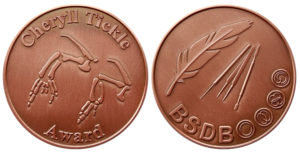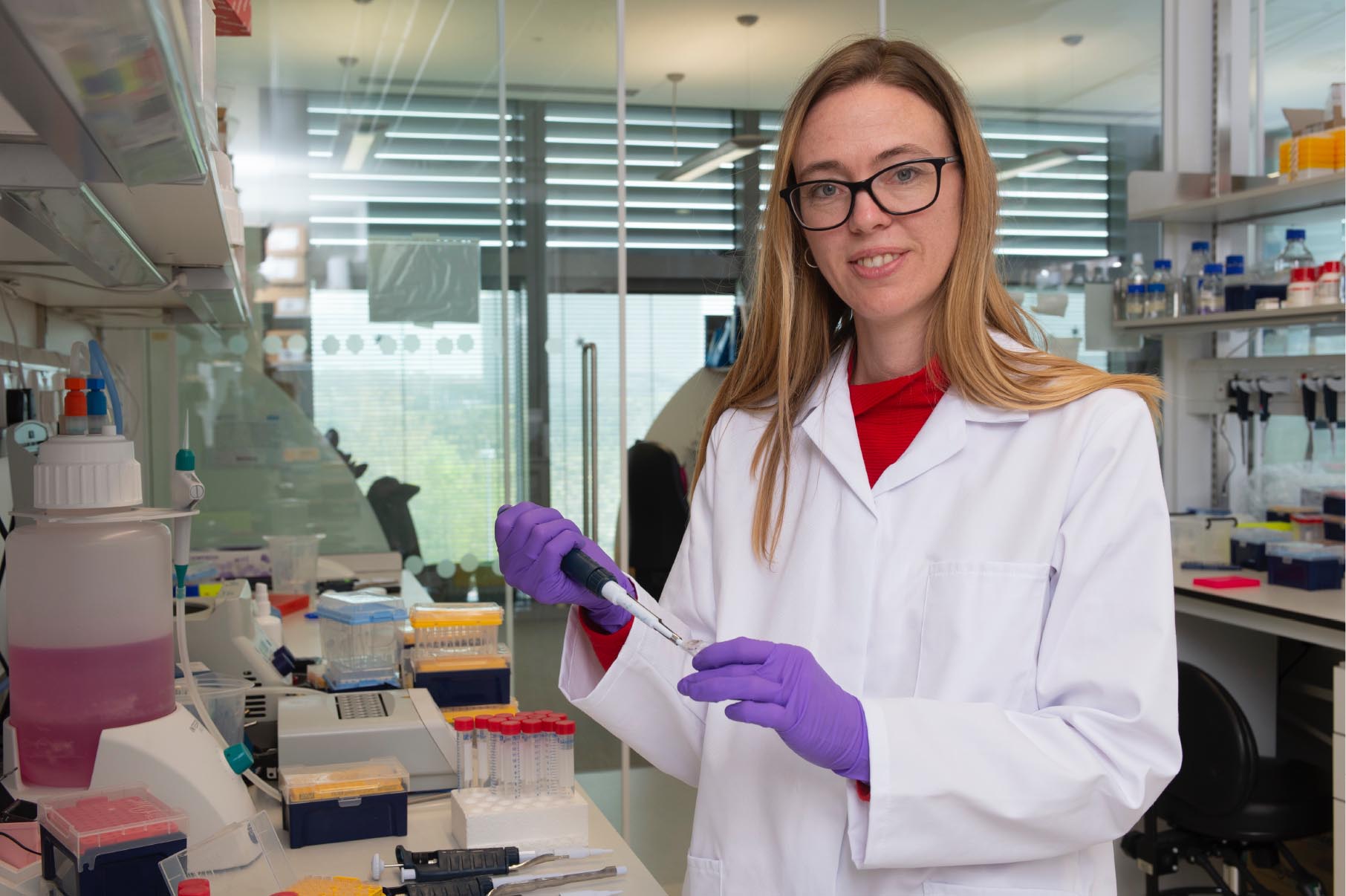In 2016, the BSDB introduced the Cheryll Tickle Medal, which is being awarded annually to a mid-career, female scientist for her outstanding achievements in the field of Developmental Biology. The BSDB is proud to announce the 2023 awardee as Dr. Madeline Lancaster!

 Madeline is a most worthy recipient of the Tickle Medal. Madeline started her independent laboratory in 2015 at the Medical Research Council Laboratory of Molecular Biology (University of Cambridge) following landmark and courageous work developing organoids for the most complex and inaccessible of organs – the human brain. To do so, Madeline, looked to Developmental Biology to rationally decide upon conditions that might guide cellular self-organisation into variations of this organ, or regions or aspects of it (e.g., mimicking different axial levels and stages, more recently capable of secreting cerebrospinal fluid). Although there is not an embryo in sight, Madeline’s work has provided unprecedented functional access to models and perturbations relevant to understanding human brain development. It has also allowed probing of likely mechanisms of brain evolution and indeed its marriage with development, in the field of “evo-devo”. Finally, it has allowed investigation of intersections between development and human disease. Under her guidance, iterations of healthy and disease modelling brain organoids are contributing a wealth of what we could call equally “cellular synthetic biology” or “engineered developmental biology”. We are learning what it takes – at the molecular, cell biological, and supra-cellular levels – to coax cells into building particular fate and morphological ensembles that recapitulate important aspects of brain development.
Madeline is a most worthy recipient of the Tickle Medal. Madeline started her independent laboratory in 2015 at the Medical Research Council Laboratory of Molecular Biology (University of Cambridge) following landmark and courageous work developing organoids for the most complex and inaccessible of organs – the human brain. To do so, Madeline, looked to Developmental Biology to rationally decide upon conditions that might guide cellular self-organisation into variations of this organ, or regions or aspects of it (e.g., mimicking different axial levels and stages, more recently capable of secreting cerebrospinal fluid). Although there is not an embryo in sight, Madeline’s work has provided unprecedented functional access to models and perturbations relevant to understanding human brain development. It has also allowed probing of likely mechanisms of brain evolution and indeed its marriage with development, in the field of “evo-devo”. Finally, it has allowed investigation of intersections between development and human disease. Under her guidance, iterations of healthy and disease modelling brain organoids are contributing a wealth of what we could call equally “cellular synthetic biology” or “engineered developmental biology”. We are learning what it takes – at the molecular, cell biological, and supra-cellular levels – to coax cells into building particular fate and morphological ensembles that recapitulate important aspects of brain development.
In all, Madeline’s work speaks broadly not only to stem and developmental biologists, it illustrates the power of developmental biology to impact questions society at large cares deeply about such as what makes us (a healthy) human. Given the interest Madeline’s work has sparked, many developmental biologists are interested in adopting her models and her insight. Madeline is always happy to get people to visit to learn her protocols, welcoming interactions and collaborations. Finally, she has been very supportive of the first postdoc currently “flying the nest” towards an independent academic post.
- Rita Sousa-Nunes
- Jeremy Green
Selected papers:
Benito-Kwiecinski S, Giandomenico SL, Sutcliffe M, Riis ES, Freire-Pritchett P, Kelava I, Wunderlich S, Martin U, Wray GA, McDole K, Lancaster MA. (2021)
An early cell shape transition drives evolutionary expansion of the human forebrain.
10.1016/j.cell.2021.02.050.
Pellegrini L, Bonfio C, Chadwick J, Begum F, Skehel M, Lancaster MA. (2020)
Human CNS barrier-forming organoids with cerebrospinal fluid production.
10.1126/science.aaz5626
Giandomenico SL, Mierau SB, Gibbons GM, Wenger LMD, Masullo L, Sit T, Sutcliffe M, Boulanger J, Tripodi M, Derivery E, Paulsen O, Lakatos A, Lancaster MA. (2019)
Cerebral organoids at the air-liquid interface generate diverse nerve tracts with functional output.
10.1038/s41593-019-0350-2
Lancaster MA, Corsini NS, Wolfinger S, Gustafson EH, Phillips AW, Burkard TR, Otani T, Livesey FJ, Knoblich JA. (2017)
Guided self-organization and cortical plate formation in human brain organoids.
10.1038/nbt.3906
Lancaster, M.A., Renner, M., Martin, C.A., Wenzel, D., Bicknell, L.S., Hurles, M.E., Homfray, T., Penninger, J.M., Jackson, A.P. and Knoblich, J.A. (2013)
Cerebral organoids model human brain development and microcephaly.
10.1038/nature12517
